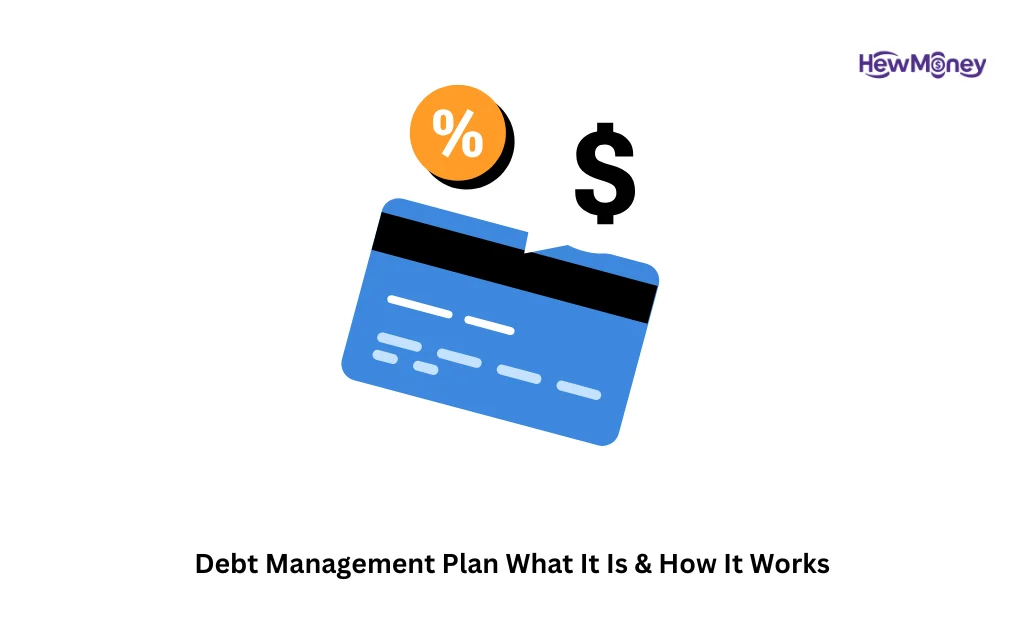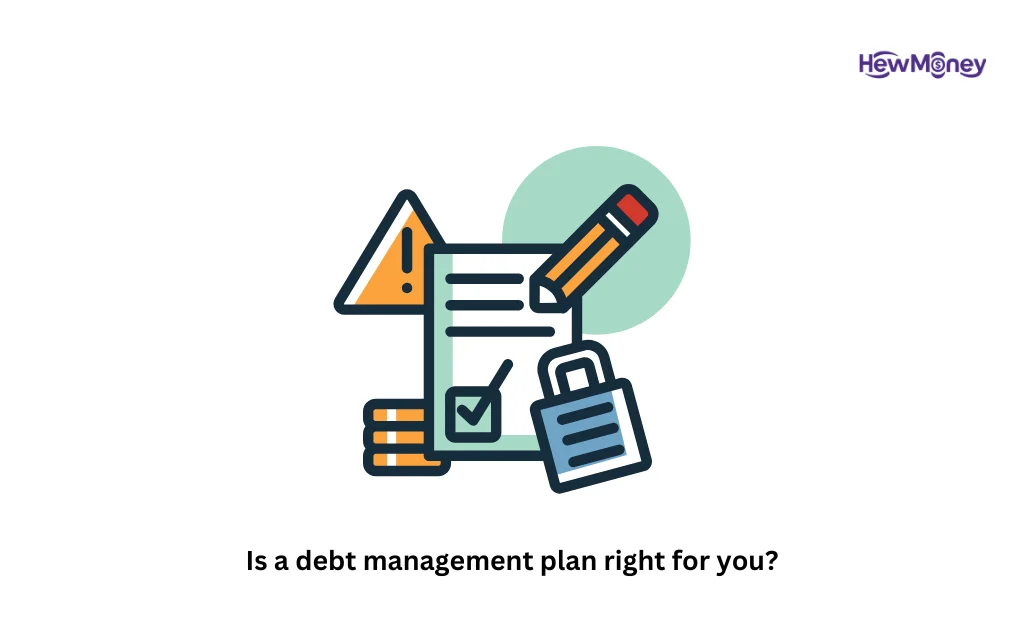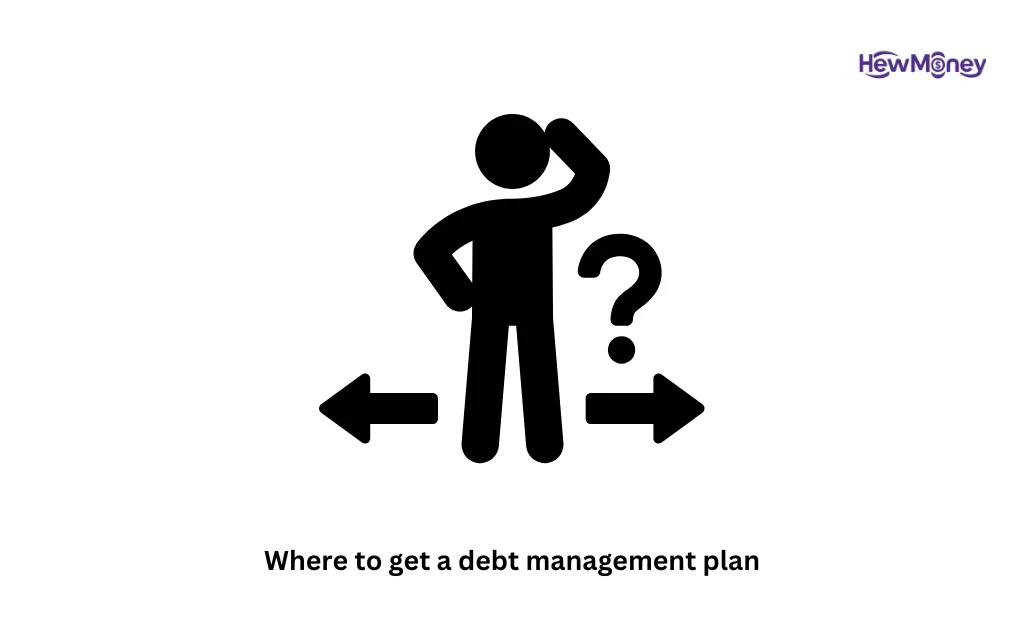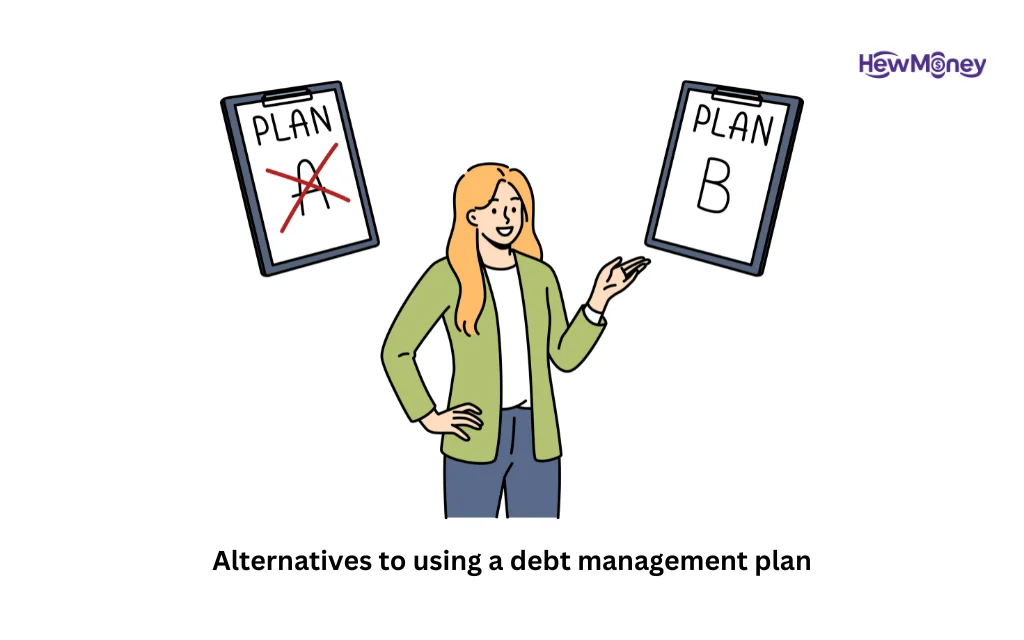A debt management plan lowers your interest rate, sets up a three- to five-year payback schedule, and consolidates many credit card obligations into a single payment.
If you’re having trouble paying your credit card bills every month, a debt management plan from a nonprofit credit counseling agency might be the help you need.
A debt management plan has less effect on your credit score than other debt payoff options, like debt settlement or bankruptcy, and can help you pay down credit card debt while saving on interest.

What is a debt management plan?
One kind of financial product that credit counseling organizations offer is a debt management plan, which can assist you in repaying unsecured debts such as personal loans and credit cards. Student loan debt and secured debts like mortgages and auto loans are not covered.
A debt management plan lowers your interest rates, combines all of your debt payments into one payment, and provides you with a planned repayment schedule that spans three to five years.
How does a debt management plan work?
A credit counselor will get in touch with each creditor to inform them of your debt management plan and designate itself as the payer on your account after you sign up for
one. Each creditor may be asked to make concessions by the counselor, such as lowering interest rates, requiring monthly payments, or not charging late fees.
The counseling organization will receive your monthly payment electronically and use it to settle your debts on your behalf.
Each credit account under the plan will probably have a monthly fee in addition to the signup price. Although fees differ from agency to agency, they usually fall between $25 and $40. Your total monthly cost should be less, even with fees.
Any enrolled credit accounts must be closed as part of the debt management plan, however you might be able to keep one open for unforeseen costs. While you are engaged in the plan, you will not be allowed to open new lines of credit.
Is a debt management plan right for you?

If you have excessive credit card debt and your debt-to-income ratio is 43% or more, debt management is most effective. Before choosing to sign up, examine the benefits and drawbacks of debt management programs.
Pros of debt management plans
- Interest savings: A credit counselor will try to negotiate lower interest rates when you enroll in the debt management plan. It will be easier for you to pay off debt when there is less interest because more money will go toward the principal.
- Simplifies debt: Instead of juggling multiple due dates, a debt management plan will just require you to keep an eye on one payment per month.
- gives you a plan of action: Credit card debt can feel overwhelming at times, but a debt management plan gives it structure. If you complete all of your payments on time, you will finish the program debt-free.
- Reduces temptation: Living without credit cards and being unable to apply for new credit may be helpful if you struggle with excessive spending.
Cons of debt management plans
- Multi-year commitment required: Three to five years is a long time to make your monthly payment. Make sure you can afford the monthly payment amount for the duration of the plan before joining.
- Restricts credit availability: For certain borrowers, being unable to create new credit lines or having little to no access to credit cards for a maximum of five years may cause worry.
Where to get a debt management plan

Credit counseling organizations offer debt management programs. Seek out a nonprofit organization that has National Foundation for Credit Counseling accreditation.
A credit counselor will examine your financial status in detail and go over a number of options with you, not simply a debt management plan. Do not feel compelled to enroll in a program on the same day it is offered. Think about it for a while.
How does a debt management plan affect your credit?
Because you have less available credit after accounts are closed, your credit score may initially decline. Although signing up for a debt management plan will appear on your credit record, it should have no bearing on your credit score.
In the long run, your credit score will probably increase if you manage your money better.
Alternatives to using a debt management plan

When debt appears overwhelming, a debt management plan is just one option for debt relief, and it might not be the best choice for you. Examine other options besides debt management programs.
Debt consolidation loans
A debt consolidation loan is a kind of personal loan in which you pay off all of your bills at once and then pay it back over a predetermined period of time, often one to seven years, at a
fixed interest rate. If you can qualify for a lower rate than the average rate for all of your current debts, these loans are a viable option. Credit unions and online lenders offer debt consolidation loans for those with weak credit.
Debt settlement
The process of working with a third party, such as a debt settlement company, to negotiate your debts down to a smaller amount than you owe is known as debt settlement. Only think about debt settlement after you have exhausted all other options for paying off your debt because it can negatively impact your credit score and is not always successful.
Bankruptcy
If your debt surpasses 40% of your income and you do not have a plan to pay it off within five years, bankruptcy can be an option. Before thinking about this alternative, consult a bankruptcy lawyer (consultations are typically free).
1. Debt Snowball Method
The Debt Snowball Method focuses on paying off your smallest debt first while making minimum payments on the rest. Once the smallest debt is cleared, you move to the next smallest. This strategy builds momentum and motivation as you see quick progress. It’s ideal for those who need a psychological boost to stay committed to debt repayment.
Pros:
✔ Quick wins help build motivation
✔ Encourages financial discipline
Cons:
✖ May cost more in interest over time if high-interest debts are left for later.
2. Debt Avalanche Method
Unlike the Snowball Method, the Debt Avalanche Method prioritises debts with the highest interest rates first. This approach saves more money in the long run, as it reduces the total interest paid.
Pros:
✔ Saves money on interest
✔ Helps clear expensive debts faster
Cons:
✖ Can take longer to see progress, which might be discouraging

